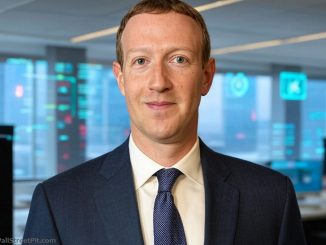With the advent of virtual reality, augmented reality, and mixed reality, it’s clear that we’re heading towards a future where people will spend more and more time in digital worlds.
But what does that mean for our real world? Will we eventually all move to digital worlds and start experiencing life in a whole new and different way?
The Facebook — now Meta — CEO Marc Zuckerberg thinks it might be something in between. In a new interview with tech podcaster Lex Fridman, Zuckerberg gave an interesting response about the potential for a metaverse “singularity moment” – a hypothesized point in time at which artificial intelligence (AI) will have surpassed human intelligence.
“A lot of people think that the Metaverse is about a place, but one definition of this is it’s about a time when basically immersive digital worlds become the primary way that we live our lives and spend our time,” he told Fridman. “I think that’s a reasonable construct.”
The metaverse is a virtual reality platform that aims to merge the digital and physical worlds. These virtual worlds allow users to interact and explore and can be used for a variety of purposes, such as education, business, and socializing. In a metaverse, users can create avatars that represent themselves and communicate with others using voice or text chat. They can also explore the virtual world, which can be composed of different types of landscapes, buildings, and objects.
It should be noted that Zuckerberg, who plans to pour billions of dollars into developing the metaverse, is not the only one who has predicted a future in which we spend more time living in virtual reality than in the real world.
In fact, Melanie Subin, director of the Future Today Institute consulting firm, told The New York Post in January that “a large proportion of people” will be living in the metaverse by 2030. This may sound like something out of a science fiction movie, but it could very well become reality.
One of the main reasons for this is that virtual reality technology is getting better and better. It is now possible to create realistic virtual environments that are so lifelike that people can get lost in them for hours on end.
Zuckerberg’s “singularity moment” comment meanwhile, refers to exponential changes in technology. This event would cause unprecedented transformation in all aspects of society.
Some people believe that the singularity presents great risks, while others see it as an opportunity for enormous benefits. The potential dangers are many, including the possibility of machines becoming uncontrollable and running amok. But others point to the potential for greater efficiency, innovation, and creativity in all aspects of society as reasons to embrace the singularity.
Whether one views the singularity as a risk or an opportunity, it is clear that it will bring profound changes to our world.
h/t: Futurism
- Bulenox: Get 45% to 91% OFF ... Use Discount Code: UNO
- Risk Our Money Not Yours | Get 50% to 90% OFF ... Use Discount Code: MMBVBKSM
Disclaimer: This page contains affiliate links. If you choose to make a purchase after clicking a link, we may receive a commission at no additional cost to you. Thank you for your support!




Leave a Reply